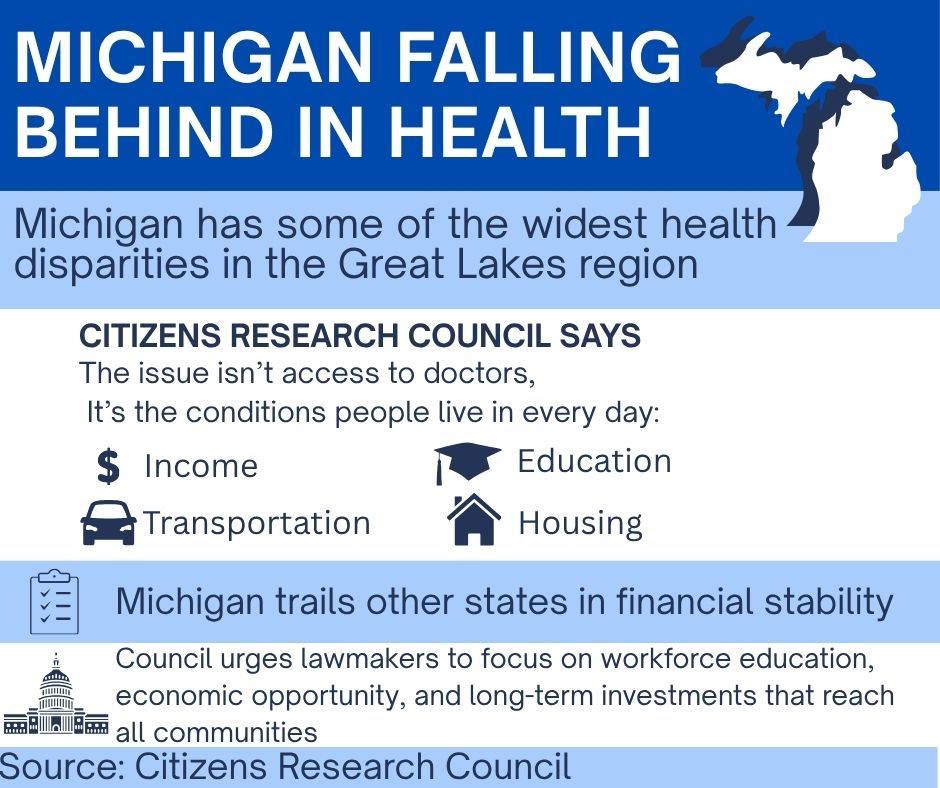LANSING, Mich. (WZMQ) – A new statewide analysis is urging Michigan lawmakers to rethink how they approach health policy, arguing that the state’s biggest health challenges cannot be solved through the health care system alone.
The Citizens Research Council of Michigan on Tuesday released an in-depth report, Social Determinants of Health: Pathways to a Healthier Michigan, examining why Michiganders experience worse health outcomes than residents in neighboring Great Lakes states, across the country, and even compared to international peers.
Researchers say two themes stood out: the deep interconnectedness of the social factors that shape health, and the outsized influence of one factor in particular.
“In every area of public policy, there is a nexus to health and well-being,” said Karley Abramson, a health policy research associate with the Council. “The pathways can almost always be traced back to whether an individual has the necessary financial resources to achieve good health outcomes.”

Financial resources at the center of Michigan’s health gap
The report argues that improving health in Michigan requires addressing a broad set of social determinants of health, including food access, transportation, safety, social support, and the health care system itself. But researchers say income, education, and employment, the core components of financial stability, are the foundation of nearly every other outcome.
Eric Lupher, president of the Citizens Research Council, called these financial indicators the central story behind Michigan’s lagging performance.
“Each of these categories covers a vast number of overlapping issues, and their interconnectedness is central to any discussion about health policy,” Lupher said. “The centrality of financial resources, education, employment, and income is the story of Michigan’s lagging health outcomes.”
The Council notes that while Michigan has made improvements in health care access, the state still trails its peers in graduation rates, income growth, and workforce opportunities. Those gaps, researchers say, spill into every part of daily life: whether residents can buy healthy food, afford safe housing, access transportation, or maintain social connections.
A roadmap for policymakers
The Research Council says the goal of the report is not to prescribe specific legislation, but to help lawmakers translate broad social determinants into actionable policy. The report focuses on five core resource areas: Financial Resources, Health Care, Food and Nutrition, Safety, and Social Support.
By anchoring discussions in these categories, the Council hopes to help policymakers craft strategies that address both immediate needs and long-term barriers to better health.
“Policies in all sorts of areas influence whether a person can get what they need to be healthy,” Abramson said. “We want to give decision-makers a clearer understanding of how these issues connect.”
The report is aimed at state officials, local governments, nonprofit leaders, and community organizations as they debate Michigan’s budget and long-term health investments heading into 2026.
The full report is available at crcmich.org.










